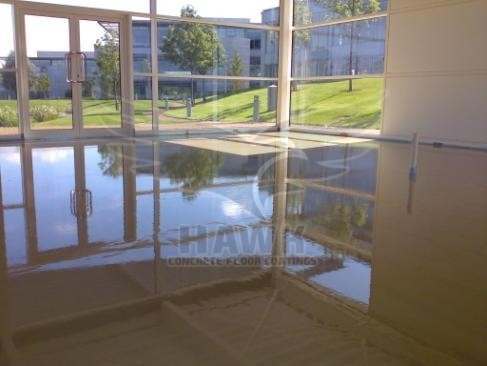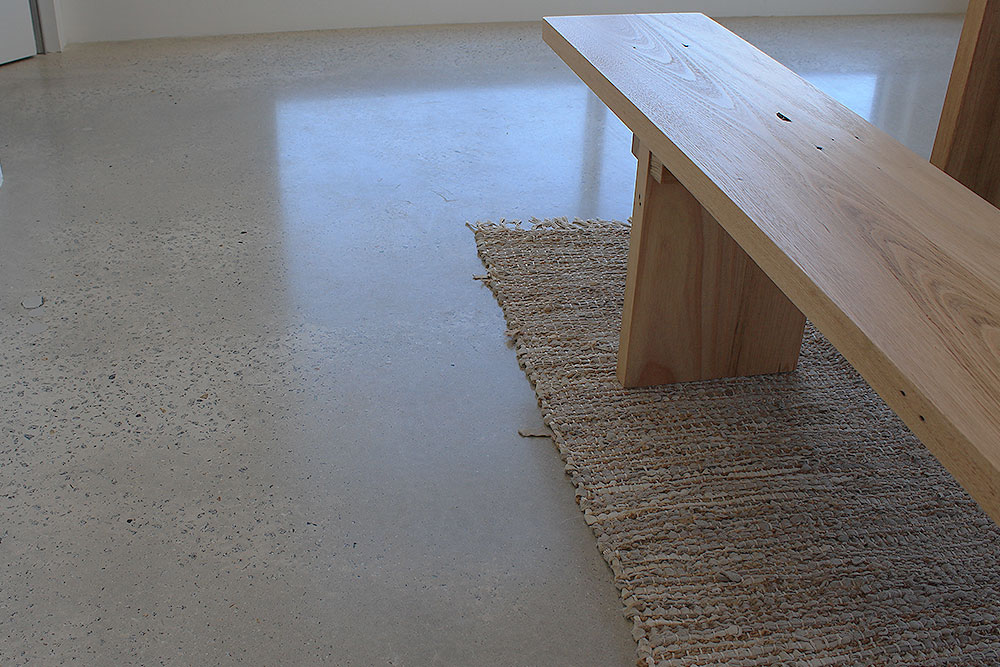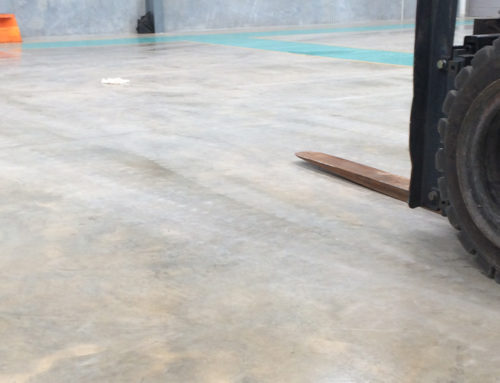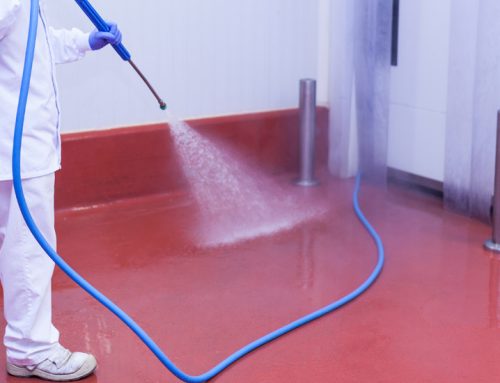If you’re like most companies requiring a flooring solution, you have engaged several flooring contractors to provide you with quotes. And you’ve quite possibly received a variety of conflicting ideas and terminologies. This article has been written with the purpose to explain the various terminologies and explain the pros and cons of the different Flooring Systems on the market , to help you make the right decision.
The goal at Hawk CFC is to provide exceptional quality flooring systems, as well as the best value. Hawk CFC is not tied to any one manufacturer or supplier, nor manufactures it’s own products, removing any bias in our product selection, and freeing us up to use the best technologies and the most suitable materials on every job.
There are thousands of flooring resins, sealers, etc on the market today, many of them are great products, but NONE of them are suitable for every type of floor. Product and methodology specification is the most important part of any Flooring Project, yet unfortunately most contractors take a “One-Size-Fits-All” approach.
Epoxy Resin:
A quality manufactured epoxy resin is one of the most time proven flooring systems available today. As a general rule, epoxy has the highest adhesion value amongst its peers, is resistant to many chemicals, and possesses impressive strength qualities. One of the main strengths of epoxy resin is the ability to achieve higher film thickness compared to polyurethane, polyaspartic, polyurea, polycuramine, acrylic, and virtually any other flooring resin.
Epoxy resin has been strongly attacked in recent years by companies promoting hybrid resins, and the criticism is largely a response to the failings of poor quality epoxies that have been applied in the wrong settings or by poorly trained applicators. Epoxy is not suitable for every environment, but the experienced applicator knows when to use it as part of an overall flooring solution.
100% solids epoxy is the best type of epoxy, as it represents a liquid resin with zero “evaporatives” – it is not thinned down, and makes for a tougher, stronger end product.
Questions to Ask Your Contractor:
What % solids is the epoxy you will be using?
Is it an epoxy resin or an epoxy “paint” ?
Polyurea/Polyaspartic/Polycuramine (Often 90-100% Solids Content): Polyurea type products are relatively new to the Australian market but are now available from numerous supply sources. Originally based on polyurethane technology, these products have been chemically modified to possess characteristics such as: fast cure times, higher resistance to certain types of chemicals, etc.
The product is “Thin-Applied” which saves on material expenses, and fast to install (saving labour expenses) leading many contractors to specify this product for all flooring jobs (higher profit margins). However, Polyurea has some weaknesses including its thin film thickness (a barrier that is easier to penetrate), and has a reputation for not coping with hydrostatic pressure build-up in concrete, making it susceptible to delamination over time.
Conclusion: Hawk CFC generally specifies these materials as a Top-Coat only, using a different resin system to provide the adhesion and barrier. Where a tight budget is in place, we will offer to apply these materials directly to the concrete.
Questions To Ask Your Contractor:
Are you applying this material directly to the concrete, or have you allowed for a base coat first?
What is the total film thickness you will be providing?
Low Solids Polyurethane (40-50% solids content):
Polyurethane has been around for a long time and has become a mainstay product for concrete applications. Always applied at very thin film thicknesses, it is ideal as a top coat over epoxy resin. A good quality Polyurethane is very hard-wearing, scratch resistant and has exceptional adhesion to epoxy resin.
As a cost saving scenario, polyurethane can be applied directly to prepared concrete in a 2 coat system.
High Solids Polyurethane (60-70% solids content):
Hawk CFC uses a High Solids Polyurethane often – both as a top coat over epoxy resin, or as a concrete sealer with greater performance characteristics compared to epoxy paints, and/or low solids polyurethane. All the benefits of the above low solids polyurethane, with the added benefit of 100% UV stability AND the ability to block UV rays from reaching surfaces below. It has the highest scratch resistance and wear characteristics.
Epoxy Paint:
Epoxy paints are similar to Epoxy Resin, except they have been thinned down, and are often filled with “fillers” which are cheaper than genuine epoxy. So a paint that is advertised as “90% Solids Epoxy” might refer to the total solids content, but only a portion of those solids are actually epoxy!
Hawk Concrete Floor Coatings does not recommend epoxy paints, concrete paints, etc, and will only use them if specifically requested, for the following reasons:
– Epoxy paint is known to delaminate from concrete surfaces over time and is largely responsible for giving “epoxy” a bad reputation.
– Poor shore hardness leads to top-down wear.
– Low cost, low quality ingredients.
Epoxy Sealer:
This is a cost effective system, still preferable to using a form of a paint. This is a thin epoxy material designed to penetrate into the pores of the concrete and provide gloss/satin, and an easy to clean surface. Epoxy sealer will never peel off a properly prepared surface. If you are looking for a low cost floor and are considering selecting an acrylic type sealer, you would be well advised to pay a little more and get a far superior finish.
Polyurethane Paint:
As with all types of paints, Hawk CFC does not recommend it applied on concrete surfaces. Polyurethanes are known for their scratch resistance, but even high quality polyurethane paints are renowned for peeling/delamination.
Water based and solvent based Acrylic Sealers:
As a general rule, Hawk CFC does not recommend acrylic sealers for commercial use of any kind. Acrylic, regardless of whether it is based in water or solvent is considered a “soft” coating and will not last. When specifically requested, Hawk CFC has a modified acrylic coating which outperforms standard acrylic coatings, but consider for a small amount extra, it is worth upgrading to the epoxy sealer.
The Abrasion Resistance Debate: Practical abrasion resistance is determined by BOTH the inherent hardness (usually measured by the Taber Test) of the resin AND the film thickness actually applied. Some manufacturers of “Thin-Applied” resins (generally anything starting with “Poly”) claim extraordinary levels of abrasion resistance, yet the material is applied so thin that it can wear through much quicker than coatings with less impressive statistics.
A high film thickness has always been a key component in the longevity of a flooring system. A high film thickness puts a barrier between your concrete substrate and the work environment. Beware of sales reps selling “Thin-Applied” coatings telling you that a high film thickness brings problems. A properly prepared surface with a high quality, high-build resin is less likely to delaminate or wear through compared to thinner products.
Questions to Ask Your Contractor:
What is the micron thickness of the product you have quoted?”
Who Will Be Installing Your Floor?
Hawk CFC uses its own “in-house” employees to complete virtually all of our flooring work. Many companies still outsource the application of their products to contractors (as we once did!). The problem with outsourcing the installation is that Quality Control becomes difficult, and the job gets completed by whoever is available at the time!
Resin floors require Quality Control and we provide this in the following ways:
1) Virtually all floors are completed by in-house trained staff and not the first available contractor.
2) Jobs completed in the past are viewed from time to time to provide feedback on the success of various systems in different environments.
3) Hawk CFC currently has working relationships with over a dozen different suppliers, giving us a huge range of products to specify from.
4) Constant product research to ensure we are on the cutting edge of new technologies and sciences.
5) Hawk CFC has been operating since 2004: 10 years experience to draw from.
6) Hawk CFC has received Accreditation from multiple suppliers who offer Accreditation.
7) Member of HIA.




